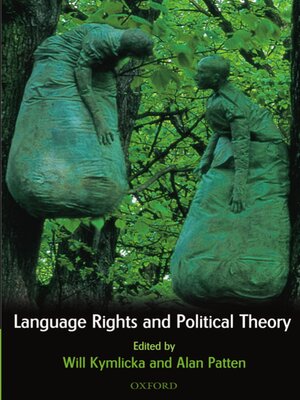
Sign up to save your library
With an OverDrive account, you can save your favorite libraries for at-a-glance information about availability. Find out more about OverDrive accounts.
Find this title in Libby, the library reading app by OverDrive.



Search for a digital library with this title
Title found at these libraries:
| Loading... |
Disputes over language policy are a persistent feature of the political life of many states around the world. Multilingual countries in the West such as Belgium, Spain, Switzerland and Canada have long histories of conflict over language rights. In many countries in Eastern Europe and the Third World, efforts to construct common institutions and a shared identity have been severely complicated by linguistic diversity. Indigenous languages around the world are in danger of disappearing. Even in the United States, where English is widely accepted as the language of public life, the linguistic rights of Spanish-speakers are hotly-contested. Not surprisingly, therefore, political theorists have started to examine questions of language policy, and how they relate to broader issues of democracy, justice and rights. This volume provides the reader with an up-to-date overview of the emerging debates over the role of language rights and linguistic diversity within political theory. It brings together many of the leading political theorists who work in the field, together with some of the most important social scientists, with the aim of exploring how political theorists can conceptualize issues of language rights and contribute to public debates on language policy. Questions of language policy are not only of enormous political importance in many countries, but also help to illuminate some of the most important debates in contemporary political theory, including questions of citizenship, deliberative democracy, nationalism, multiculturalism, identity politics, group rights, the liberal-communitarian debate, and so on. The thirteen essays in this volume highlight both the empirical constraints and normative complexities of language policy, and identify the important challenges and opportunities that linguistic diversity raises for contemporary political theory.






